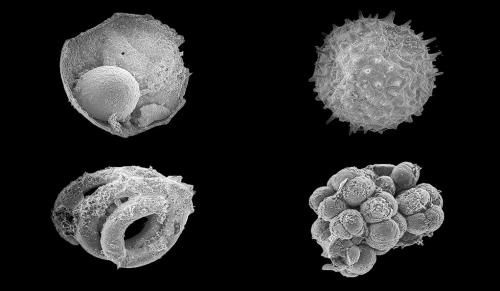
A Yale-led research team has discovered a cache of embryo-like microfossils in northern Mongolia that may shed light on questions about the long-ago shift from microbes to animals on Earth.
Called the Khesen Formation, the site is one of the most significant for early Earth fossils since the discovery of the Doushantuo Formation in southern China nearly 20 years ago. The Dousantuo Formation is 600 million years old; the Khesen Formation is younger, at about 540 million years old.
“Understanding how and when animals evolved has proved very difficult for paleontologists. The discovery of an exceptionally well-preserved fossil assemblage with animal embryo-like fossils gives us a new window onto a critical transition in life’s history,” said Yale graduate student Ross Anderson, first author of a study in the journal Geology.